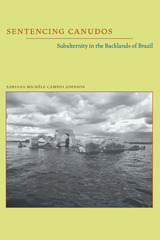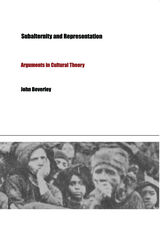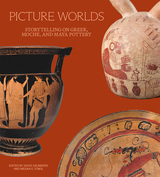
Williams develops his argument through studies of events highlighting Latin America’s uneasy, and often violent, transition to late capitalism over the past thirty years. He looks at the Chiapas rebellion in Mexico, genocide in El Salvador, the Sendero in Peru, Chile’s and Argentina’s transitions to democratic governments, and Latin Americans’ migration northward. Williams also reads film, photography, and literary works, including Ricardo Piglia’s The Absent City and the statements of a young Salvadoran woman, the daughter of ex-guerrilleros, living in South Central Los Angeles.
The Other Side of the Popular is an incisive interpretation of Latin American culture and politics over the last few decades as well as a thoughtful meditation on the state of Latin American cultural studies.

In the late nineteenth century, the Brazilian army staged several campaigns against the settlement of Canudos in northeastern Brazil. The colony’s residents, primarily disenfranchised former slaves, mestizos, landless farmers, and uprooted Indians, followed a man known as Antonio Conselheiro (“The Counselor”), who promoted a communal existence, free of taxes and oppression. To the fledgling republic of Brazil, the settlement represented a threat to their system of government, which had only recently been freed from monarchy. Estimates of the death toll at Canudos range from fifteen thousand to thirty thousand.
Sentencing Canudos offers an original perspective on the hegemonic intellectual discourse surrounding this monumental event in Brazilian history. In her study, Adriana Michele Campos Johnson offers a close examination of nation building and the silencing of “other” voices through the reinvisioning of history. Looking primarily to Euclides da Cunha’s Os Sertões, which has become the defining—and nearly exclusive—account of the conflict, she maintains that the events and people of Canudos have been “sentenced” to history by this work. Johnson investigates other accounts of Canudos such as local oral histories, letters, newspaper articles, and the writings of Cunha’s contemporaries, Afonso Arinos and Manoel Benício, in order to strip away political agendas. She also seeks to place the inhabitants and events of Canudos within the realm of “everydayness” by recalling aspects of daily life that have been left out of official histories.
Johnson analyzes the role of intellectuals in the process of culture and state formation and the ensuing sublimation of subaltern histories and populations. She echoes recent scholarship that posits subalternity as the product of discourse that must be disputed in order to recover cultural identities and offers a view of Canudos and postcolonial Latin America as a place to think from, not about.

Dismissed by some as simply another new fashion in the critique of culture and by others as a postmarxist heresy, subaltern studies began with the work of Ranajit Guha and the South Asian Subaltern Studies collective in the 1980s. Beverley’s focus on Latin America, however, is evidence of the growing province of this field. In assessing subaltern studies’ purposes and methods, the potential dangers it presents, and its interactions with deconstruction, poststructuralism, cultural studies, Marxism, and political theory, Beverley builds his discussion around a single, provocative question: How can academic knowledge seek to represent the subaltern when that knowledge is itself implicated in the practices that construct the subaltern as such? In his search for answers, he grapples with a number of issues, notably the 1998 debate between David Stoll and Rigoberta Menchú over her award-winning testimonial narrative, I, Rigoberta Menchú. Other topics explored include the concept of civil society, Florencia Mallon’s influential Peasant and Nation, the relationship between the Latin American “lettered city” and the Túpac Amaru rebellion of 1780–1783, the ideas of transculturation and hybridity in postcolonial studies and Latin American cultural studies, multiculturalism, and the relationship between populism, popular culture, and the “national-popular” in conditions of globalization.
This critique and defense of subaltern studies offers a compendium of insights into a new form of knowledge and knowledge production. It will interest those studying postcolonialism, political science, cultural studies, and Latin American culture, history, and literature.

In this bold and innovative book, Massimo Modonesi weaves together theory and political practice by relating the concepts of subalternity, antagonism and autonomy to contemporary movements in Latin America and elsewhere.
In a sophisticated account, Modonesi reconstructs the debates between Marxist authors and schools of thought in order to sketch out informed strategies of resistance. He reviews the works of Gramsci, Negri, Castoriadis and Lefort, and engages with the arguments made by E. P. Thompson, Spivak, Laclau and Mouffe.
Subalternity, Antagonism, Autonomy firmly roots key theoretical arguments from a range of critical thinkers within specific political movements in order to recover these concepts as analytical instruments which can help to guide contemporary struggles.
READERS
Browse our collection.
PUBLISHERS
See BiblioVault's publisher services.
STUDENT SERVICES
Files for college accessibility offices.
UChicago Accessibility Resources
home | accessibility | search | about | contact us
BiblioVault ® 2001 - 2024
The University of Chicago Press









